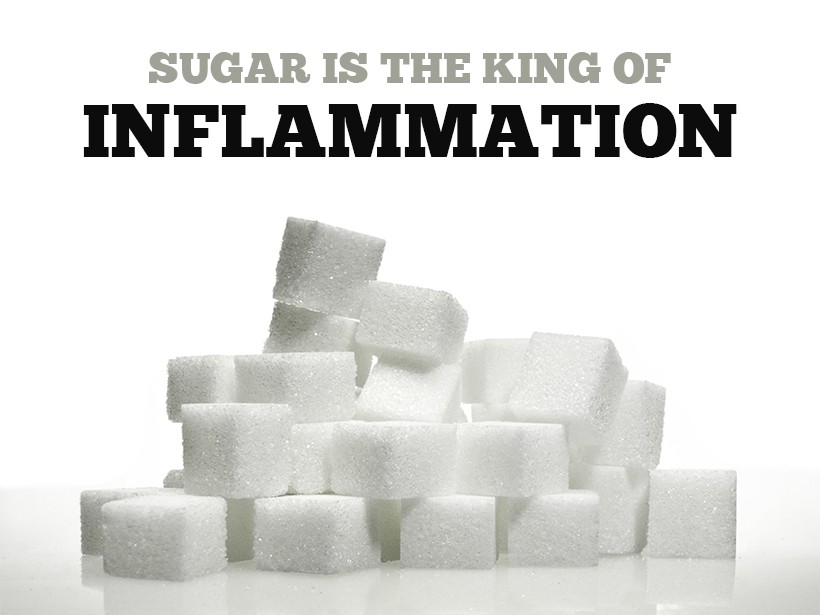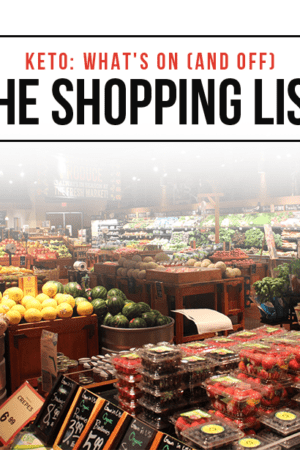If you’re on a quest to eat cleaner and healthier, you’ve likely heard about the dangers of inflammation. Many of us, however, don’t understand how different foods affect inflammation in the body. Moreover, lots of people (and patients) don’t know exactly how chronic inflammation can develop into more than just a gut problem and, over time, become systemic.
What Causes Inflammation & Why Is It Dangerous?
First and foremost, it’s important to note that sugar is one of the primary root causes of inflammation. Over time, it inflicts a massive blow on gut and full-body health. As many can attest, we often start our days with a stimulant–caffeine–and we end our days with a much-deserved relaxant–wine or beer. We don’t think too much of it, but by consuming these, we’re giving ourselves three power-players in inflammation…sugar, alcohol, and caffeine.
Inflammation, while not overtly detrimental in the beginning, starts to wear and tear at your gut and overall health over time. It leads to the development of chronic conditions like non-alcoholic fatty liver disease, type 2 diabetes, excess LDL cholesterol, or even cardiovascular disease. These non-age-related conditions are preventable, but only if we limit sugar consumption and consume fewer processed food and drinks.
Sugar, Alcohol, & Caffeine Are The Trifecta of Inflammation
Sugar is inherently tricky. We know the bad forms, but we’re often fooled by the “healthy sugars” found in nut milks, fruits, and agave-sweetened treats. In fact, Dr. Vincent Pedre1 says, “Large amounts of fructose, even from healthy foods like fruit, can create or exacerbate insulin resistance and inflammation.” Remember, all carbohydrates convert to sugar in your body, as well.
Caffeine is one of those controversial elements because people respond differently. You need to listen to your body. Dr. Pedre says, “More than 150 grams will push your insulin secretion, leading to all the problems talked about before, including increasing your cravings for sugar and refined carbohydrates.” So yes, too much coffee can increase weight gain and inflammation. Alcohol can lead to intestinal inflammation as well, but there’s a delicate balance here. Drinking on occasion is fine, but excessive consumption leads to overindulgence in other areas, thereby increasing overall inflammation.
We Can Stop The Cycle Of Abuse
Sugar is the king of inflammation; however, these three elements work hand-in-hand. The keto diet has been shown to be anti-inflammatory. Remember that food should be enjoyed and savored in moderation to remain healthy, youthful, and vibrant over time.
NUTRITIONAL DISCLAIMER
The content on this website should not be taken as medical advice and you should ALWAYS consult with your doctor before starting any diet or exercise program. We provide nutritional data for our recipes as a courtesy to our readers. We use Total Keto Diet app software to calculate the nutrition and we remove fiber and sugar alcohols, like erythritol, from the total carbohydrate count to get to the net carb count, as they do not affect your blood glucose levels. You should independently calculate nutritional information on your own and not rely on our data. The website or content herein is not intended to cure, prevent, diagnose or treat any disease. This website shall not be liable for adverse reactions or any other outcome resulting from the use of recipes or recommendations on the Website or actions you take as a result. Any action you take is strictly at your own risk.
- Jacob’s Meat Market Joins the Keto Craze - February 12, 2019
- Doing the Low-Carb Lifestyle the Right Way - January 31, 2019
- How to Boost Your Metabolism and Burn Fat Faster - January 3, 2019































